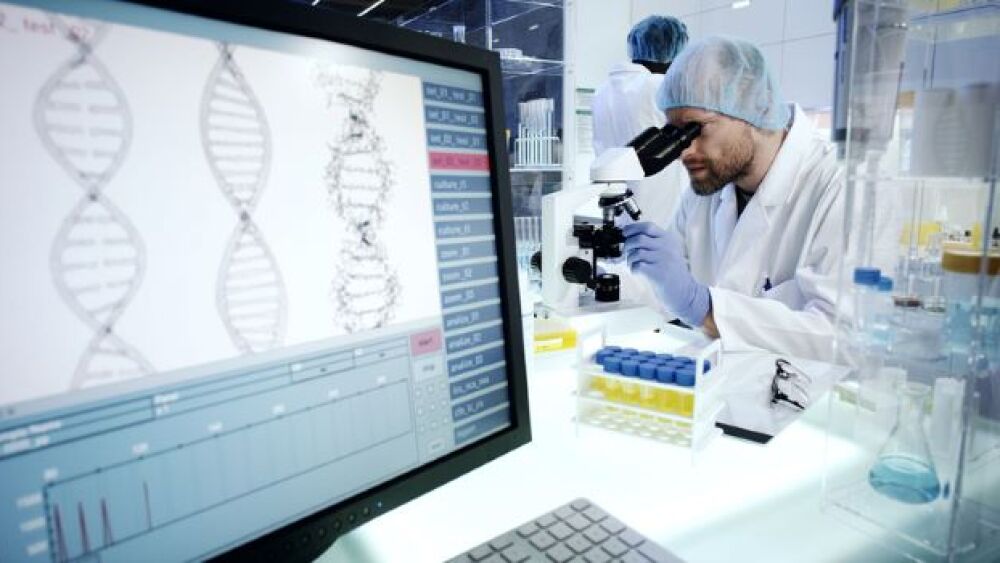The gene sequencing industry has really taken off in recent years. Here’s a look at the top five genome sequencing companies, ranked by revenue.
Genome sequencing is the process of figuring out the order of all the genetic material in a cell. The goal of this practice is to use this information to diagnose and treat diseases.
To date, genome sequencing has been used to help identify the cause of rare genetic disorders, cancer, and infectious diseases.
The Human Genome Project was the first large-scale attempt to sequence the human genome. It took place between 1990 and 2003 and cost approximately $3 billion. The project was successful in producing a high-quality reference genome that built the foundation for science’s understanding of genetics.
Top 5 Genome Sequencing Companies by Revenue
In recent years, advances in technology have drastically reduced the cost of genome sequencing, as scientists can now reference previous sequences to help them put new ones together more quickly. This has spurred a new wave of companies that are offering genome sequencing services to patients.
Today, it is possible to sequence a human genome for as little as $1,000, but some companies that offer this service are looking to bring that number down to as low as $100, furthering the potential for widespread adoption.
Let’s take a look at the top five genome sequencing companies by revenue.
1. Illumina
Illumina is the leading provider of sequencing services and sells both instruments and reagents for genome sequencing. Illumina was founded in 1998 and now controls over 80% of the sequencing market. The company reported a 2021 revenue of $4.526 billion and a market cap of $28.92 billion as of September.
Illumina’s products are used in a variety of applications, including diagnostics, cancer research, drug development and agricultural biotechnology. The company has ambitions to bring the cost of sequencing a human genome down to $100 and to make DNA sequencing a routine part of healthcare and has recently announced its revolutionary NovaSeq X series platform, which it claims will be able to sequence over 20,000 genomes per year.
Illumina has consistently proven that it has no intention of giving up its dominance in the genome sequencing market anytime soon and continues to innovate and grow at an impressive rate.
2. Thermo Fisher Scientific
This company is a leader in serving science and has a wide range of products used in genomic sequencing including instruments, reagents, and software. Thermo Fisher Scientific was founded in 1956 and had a revenue of $39.211 billion in 2021.
Recently, the company announced FDA approval of its Oncomine Dx Target Test, which is the first NGS-based companion diagnostic to aid in therapy selection for patients with RET mutations/fusions in thyroid cancers.
This therapy could potentially help thousands of patients afflicted with thyroid cancer and is a clear demonstration of Thermo Fisher’s commitment to using genomic sequencing to improve patient outcomes.
3. Agilent Technologies
Agilent Technologies has established itself as a leader in lab equipment and provides services and consumables that are needed for genomic sequencing, such as DNA kits and enzymes.
The company has a wide variety of customers including universities, government agencies, and pharmaceutical companies. Agilent’s products are used in a variety of applications such as cancer research, drug development, and agricultural biotechnology.
Recently, the company announced a partnership with Mytide Therapeutics with a focus on automation, reliability and data quality issues across the peptide industry. Under this agreement, Agilent will supply analytical and preparative chromatography equipment for Mytide’s discovery and personalized therapeutics technology platform.
The company earned $6.319 billion in 2021 and $1.72 billion in the third quarter of 2022.
4. QIAGEN
QIAGEN is also a leading provider of genomic sequencing services and products with the goal to offer a wide range of solutions for genomic sequencing including instruments, reagents, and software.
The company recently announced the launch of the QIAstat-Dx Viral Vesicular Panel, a new syndromic test that is designed to combat the global health emergency of monkeypox. The panel tests for six pathogens that produce similar symptoms, including Sars-Cov-2. The panel is boosted by gold-standard PCR technology and offers broad research and surveillance capabilities for monkeypox in order to support healthcare authorities around the globe.
QIAGEN earned $516 million for the second quarter of 2022 with a revenue of $2.252 billion in 2021 - demonstrating significant growth potential for the company.
5. BGI Genomics
Based in Shenzen, China, BGI Genomics is a leading genomic sequencing company with a mission to use genomic technology to benefit humanity and improve human health. The company offers a comprehensive suite of sequencing services and products for genome sequencing, genotyping, and genetic diagnosis.
In 2021, BGI Genomics partnered with Natera, a leading ctDNA testing company, in order to announce their plan to provide the BGI/Natera Signatera Assay worldwide. The assay is designed to provide access to personalized ctDNA testing for patients and healthcare providers as well as to support cancer research and drug development.
This launch is a great step towards achieving global access to this life-saving technology which can earlier detect cancer recurrence, monitor treatment response and enable more precise and individualized treatments for patients.
BGI Genomics finished 2021 off with $1.062 billion in revenue. However, as it continues to make moves such as this recent partnership with Natera, this number could grow in the coming years.





